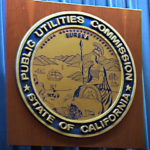US Senator Max Baucus (D-MONT) wants to kill the federal tax credit for electric cars (section 30D) in favor of a system for “technology-neutral” tax credits for “clean fuels”. The proposal is part of a larger package of energy tax code reforms that Baucus thinks will simplify the tax code, eliminate the picking of winners and losers, and improve national energy security, etc.
“It is time to bring our energy tax policy into the 21st century,” Senator Baucus said. “Our current set of energy tax incentives is overly complex and picks winners and losers with no clear policy rationale. We need a system of energy incentives that is more predictable, rational, and technology-neutral to increase our energy security and ensure a clean and healthy environment for future generations.”
This is how Baucus and his team describe the current situation:
Under current law, there are 42 different energy tax incentives, including more than a dozen preferences for fossil fuels, ten different incentives for renewable fuels and alternative vehicles, and six different credits for clean electricity. Of the 42 different energy incentives, 25 are temporary and expire every year or two, and the credits for clean electricity alone have been adjusted 14 times since 1978 – an average of every two and a half years. If Congress continues to extend current incentives, they will cost nearly $150 billion over 10 years.
The team has put forth a proposal for discussion, and is calling for input![]() . The full document of the proposal is available from the Senate website
. The full document of the proposal is available from the Senate website![]() , but because, that document is full of legalese, what’s more useful is the detailed summary
, but because, that document is full of legalese, what’s more useful is the detailed summary![]() , and the one-page summary
, and the one-page summary![]() .
.
What I notice in these documents is that they’re overly focused on the cleanliness of one energy resource over another. Cleanliness as measured in greenhouse gas emissions. This is short-sighted.
Yes, greenhouse gas emissions are very important, and if we let the atmosphere get to a much higher concentration of carbon, scientists say we’re in deep doodoo. HOWEVER, this is by far not the ONLY issue we face in terms of cleaning up the energy, electricity, and transportation system. Further, cleaning up the system, reducing its’ negative environmental impacts, is not the ONLY issue of importance.
Another big problem is what we call “peak oil” which is shorthand for resource depletion scenarios. That is, as a “resource” is used, whether that resource is a fossil fuel like oil or coal, or a mineral like copper, the use of that resource depletes the available resource. Over time it becomes harder and harder to tap those resources. And the growing difficulty in tapping fossil oil in particular is seen as a huge threat to the stability of modern society.
Because the climate change problem has gotten such deservedly huge attention, it has become the target of policy makers, and other aspects of the larger problem are being downplayed. Baucus’s energy tax reform proposal is an example of downplaying the other problems that are worthy of being addressed.
Generally the proposal applies to energy resources that are at least 25% cleaner than conventional fuels.
The approach is to simply measure energy resources by how clean they are, irregardless of the technology, and irregardless of other considerations such as those I mentioned earlier.
How is Cleanliness defined?
Cleanliness is defined by a simple ratio of the greenhouse gas emissions of a facility, as determined by the Environmental Protection Agency (EPA), divided by its electricity production.
That was for clean electricity. For clean transportation fuels they say this:
Cleanliness is defined as how clean a given fuel production process is on a lifecycle emissions basis, as determined by the EPA.
Yup, they really are focusing SOLELY on greenhouse gas emissions, as if that’s the only problem worthy of a solution.
In a way these are cool definitions, and provide a level playing field for any technology to win out. However, it means the proposed policy changes are focused on a narrow part of the problem. There are other issues that must be addressed as well. Throughout the document they say “energy security” but nothing here directly addresses energy security issues.
Another issue with the proposal is how they define “clean fuel”.
In order to simplify the credit calculation and allow businesses to plan effectively, EPA has authority to group similar production processes together and is required to provide provisional credit amounts for new technologies within 12 months of application.
Energy efficiency is defined as the energy density of a fuel compared to conventional gasoline.
The credit per gallon of fuel is calculated by multiplying its cleanliness by its energy efficiency.
This sounds very nice and technology-neutral, until you ask what “energy density of a fuel” means.
Electricity is a great fuel for transportation. But by no means is it as energy dense as gasoline. This means electric vehicles are going to face a huge disadvantage under this proposal. Further, the method of comparing energy density of one fuel versus another is rather flawed.
The accepted method of comparison is the Gallons Gasoline Equivalent (GGE) which relates two fuels by how many BTU’s are produced by the fuel. Using the GGE method, the electricity equivalent to one gallon of gasoline is 34 kilowatt-hours (or so) of electricity. (I don’t want to bother looking up the exact figure, so don’t shoot me for an inaccuracy here).
The problem with that equivalence is it doesn’t work so well in the real world. With a battery pack holding just 24 kilowatt-hours of electricity (approx 2/3rds of a gallon gasoline equivalent), a Nissan Leaf can go 75ish miles at highway speed. With a typical gasoline car that distance would require 2 1/2 gallons of gasoline.
The battery pack to carry that 2/3rds of a gallon equivalent is much larger than a typical gasoline tank, and weighs several hundred pounds. That’s what I meant by electric vehicles will have a huge disadvantage, because compared to gasoline they have a tiny energy density. Despite the fact that an electric vehicle can go much further on that energy than a gasoline vehicle could.
Another part of the proposal should not be surprising – the elimination of various current tax credits, in the name of simplifying the tax code. Surely the tax code needs to be simplified, but with sound policies not ones like this:
Section 25C credit for residential energy efficiency
Section 30B credits for fuel cell motor vehicles
Section 30D credits for electric plug-in vehicles
Section 43 credit for enhanced oil recovery costs
Section 45I marginal well production credit
Section 45N mine rescue training credit
Section 45Q carbon dioxide sequestration credit
Section 45L credit for construction of energy-efficient new homes
Section 45M credit for energy efficient appliances
Section 48C credit for investment in advanced energy property
Treatment of gain resulting from Federal Energy Regulatory Commission restructuring
Section 30D is the $7,500 federal tax credit for electric vehicles.
In short this is an extremely flawed and short-sighted proposal.
I think the effect would be to give preferential treatment to biofuels over electric vehicles, because biofuels can be made with equivalent energy density to gasoline.
I think the preference needs to be given to electric vehicles. Why? Because of the fuel flexibility: electricity can come from any resource. Also electric vehicles are inherently clean, it’s the electricity generation source that is not always clean. If you arrange for clean vehicles, and clean electricity sources, then it’s a multi-way win.
Feedback on the discussion draft is requested by 31 January 2014. The links above get you to a page where there are instructions on leaving feedback.
- Highway design could decrease death and injury risk, if “we” chose smarter designs - March 28, 2015
- GM really did trademark “range anxiety”, only later to abandon that mark - March 25, 2015
- US Government releases new regulations on hydraulic fracturing, that some call “toothless” - March 20, 2015
- Tesla Motors magic pill to solve range anxiety doesn’t quite instill range confidence - March 19, 2015
- Update on Galena IL oil train – 21 cars involved, which were the supposedly safer CP1232 design - March 7, 2015
- Another oil bomb train – why are they shipping crude oil by train? – Symptoms of fossil fuel addiction - March 6, 2015
- Chevron relinquishes fracking in Romania, as part of broader pull-out from Eastern European fracking operations - February 22, 2015
- Answer anti- electric car articles with truth and pride – truth outshines all distortions - February 19, 2015
- Apple taking big risk on developing a car? Please, Apple, don’t go there! - February 16, 2015
- Toyota, Nissan, Honda working on Japanese fuel cell infrastructure for Japanese government - February 12, 2015











